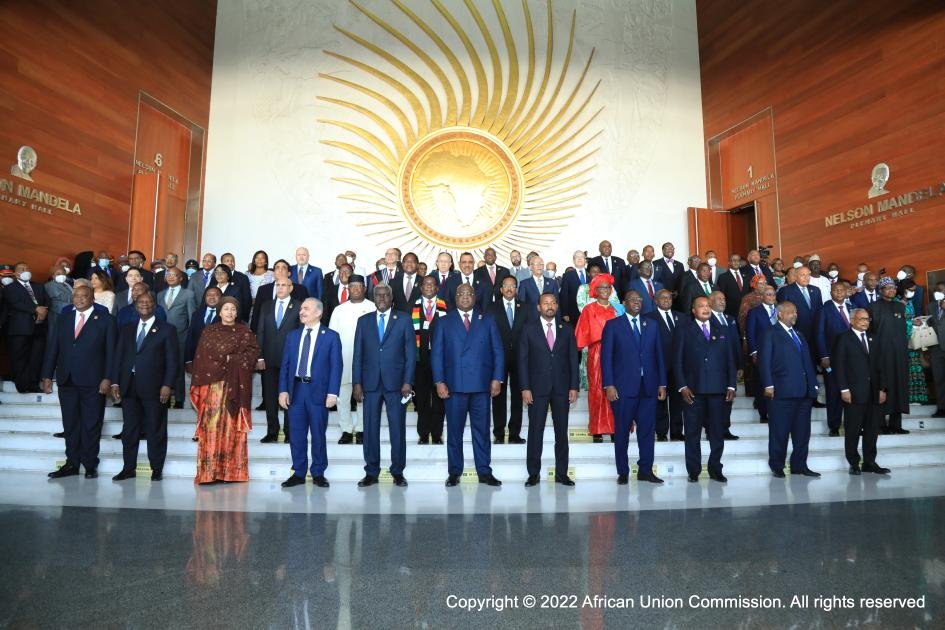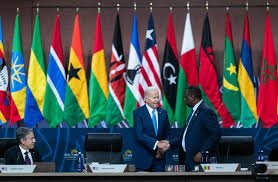About Us
Human Rights Observatory (IHRO) Africa
The International Human Rights Observatory (IHRO) Africa is an international and non profit organization (NGO) that promotes the Universal Declaration of Human Rights Violations against humanity and to collarborate with government of the various nations in Africa to enforce Human Rights principles.
Human RightsFemale Gender
Our objective is in creating a safe environment for Girls and Women to live, work, & Thrive in.
Gender Equality
We play a crucial role in promoting gender equality and ensuring that every individual can exercise their basic human rights without fear or discrimination.
Personal Right
Every person has inherent dignity and is entitled to certain fundamental freedoms and protections. We work tirelessly to protect personal rights such as freedom of expression, privacy, and autonomy.
Universal
These basic rights are based on shared values like dignity, fairness, equality, respect and Independence.
Report Case
Speak to IHRO



Universal Declaration International Human Rights Law
The international Human Rights movement was strengthened when the United Nations General Assembly adopted of the Universal Declaration of Human Rights (UDHR) on 10th, December, 1948. Drafted as a common standard of achievement for all people and Nations, the Declaration for the first time in human history spell out basic Civil, Political, Economic, Social and Cultural rights that all human beings should enjoy.
- Freedom from Arbitrary Detention.
- Presumption of Innocence.
- Right to Privacy, Freedom of Movement ....
HISTORY OF HUMAN RIGHTS The canvas of Human Rights is so wide and multidimensional that touches all the core values of the civilization. Infact it marks a massive milestone in advancement humaneteranean civilization. For centuries past, women all over the world have not only, been denied full justice, social, economic and political but as Weaker section? They have been used, abused, exploited and then discarded to lead immoral, extra vagrant and destitute life till their death. The general through unfortunate impression has ever since been that women are sub- Huma societies, an object of contempt and ridicule, a commody for barter, an expendable asset and a plaything for mere sexual enjoyment. A man's right to his liberty is the most sacred right for him and therefore, it should not be restrained without the sanction of law. The treatment of human being which offends human dignity, imposes avoidable torture and reduces the man to the level of beast would certainly be arbitrary and is impossible as a code human conduct in all religion. King John of England granted Magna Carta to the English baron on June 15, 1215 that their privileges will not be encroached and hammered. The importance of Magna Carta's resulted into confirmation by parliament in the year 1216-17 during the period of John's son, Henry III, the confirmation was done in the year 1297 and was modified by Edward I. Parliamentary superiority was formed in 1689 by the petition of Rights and Bill of Rights over the crown and rule of law in England were controlled by documentary authority. Declarations and constitutional branches of many states are supported by the expression fundamental Rights. The declaration of Independence of Thirteen United States of America in 1776. The Virginia Bill of Rights, 1776, the Constitution of the United States of 1787 with amendments in 1789, 1865,1869 and 1919 of man of 1789 enlighten other country and accelerated to add provisions in their laws for the protection of Human Rights. It was the golden rays of sun enlightening the world of Nineteenth Century to human being to know about Human Rights they possess. Worth of human personality began to be realized. The resultant of Human Rights movement was experienced by human being after the World war II. During the war whole humanitism was shocked due to heneious crimes committed against the humanity and human rights was perished. The history witnessed silently tyranny and complete lawlessness of Nazi leaders of Germany. Human values and dignities and morality were barbarously negated. Rights to the people became the need of hour to be established for international peace and security. President Franklin D. Ruosevelt on January 6, 1941 reflected in the proclamation of Four Freedom and mentioned as:
- Freedom of Speech Freedom of Religion Freedom from Want Freedom from Fear Declaration of President carries weight he said - Freedom means the supermacy of human rights everywhere our support goes to those who struggle to gain those rights or keep them? The growth and evolution of Human Rights and international law had achieved a remarkable progress since the year 1945. Sereral charters, treaties, etc, came into existence for effective enforcement of Human Rights.
Media
Discover the Dynamics of International Human Rights Observatory Media
Human Right
The canvas of Human Rights is so wide and multidimensional that it touches all the core values of the civilization.
Free and Equal
All human beings are born Free and Equal, and should be treated the same way.
Freedom from Discrimination
Everyone is entitled to all the rights and freedoms set forth in this Declaration, without distinction of any kind, such as race, colour, sex, language, religion, political or other opinion, national or social origin, property, birth or other status.
Rights to Life
Everyone has the right to life, liberty and security of person.
Freedom from Slavery
No one shall be held in slavery or servitude, slavery and the slave trade shall be prohibited in all their forms
Freedom from Torture
No one shall be subject to torture or to cruel, inhuman or degrading treatment or punishment.
Right to Recognition before the Law
Everyone has the right to recognition everywhere as a person before the Law.
My Rights as an Individual
Every individual has certain rights that they are allowed to have. It is having rules that protect you and make sure you are treated fairly.
1. Access to Justice
Everyone has the right to obtain legal help and access the justice system when your rights are not respected.
2. Freedom from Arbitrary Detention
No one shall be subjected to arbitrary arrest, detention or exile.
3. Right to a Fair Trial
Everyone is entitled in full equality to fair and public hearing by an independent and impartial tribunal.
4. Presumption of Innocence
*. Everyone Charged with a penal offence has the rights to be presumed innocent until proved guilty according to law in a public trial at which he had all guarantees necessary for his defence.
*. No one shall be guilty of any penal offence on account of any act or omission which did not constitute a penal offence, under national or International law, at the time when it was committed.
5. Right to Privacy
*. No one shall be subjected to arbitrary interference with his Privacy, family, home or correspondence, nor to attacks upon his honour and reputation.
*. Everyone has the right to the protection of the law against such interference or attacks.
6. Freedom of Movement
*. Everyone has the right to freedom of movement and residence within the borders of each state.
*. Everyone has the right to leave any Country, including his own, and to return to his Country.
7. Right to Asylum
*. Everyone has the right to seek and to enjoy in other Countries asylum from persecution.
*. The right may not invoked in the case of prosecution genuinely arising from non- political crimes or from acts contrary to the purposes and principles of the United Nations.
8. Right to Nationality
*. No one shall be arbitrary deprived of his nationality nor denied the right to change his nationality.
*. Everyone has the right to a Nationality.
9. Right to Marriage and to Found a Family
Marriage shall be entered into only with the free and full consent of the intending spouses.
10. Right to Own Property
*. Everyone has the right to own property alone as well as in association with others.
*. No one shall be arbitrary deprived of his property.
11. Freedom of Religion or Belief
Everyone has the right to freedom of thought, conscience and religion, this right includes freedom to change his religion or belief, and freedom, either alone or in community with others and in public or private, to manifest his religion or belief in teaching, practice, worship and observance.
12. Freedom of Expression
Everyone has the right to freedom of opinion and Expression, this right includes freedom to hold opinions without interference and to seek, receive and impart information and ideas through any media and regardless of frontiers.
13. Freedom of Assembly
*. Everyone has the right to freedom of peaceful assembly and association.
*. No one may be compelled to belong to an association.
14. Right to Partake in Public Affairs
*. Everyone has the right to take part in the government of his Country, directly or through freely chosen representatives.
*. Everyone has the right of equal access to public service in his Country.
15. Right to Social Security
Everyone as a member of society, has the right to social security and is entitled to realization, through national effort and international co-operation and in accordance with the organization and resources of each state, of the economic, social and Cultural rights.








